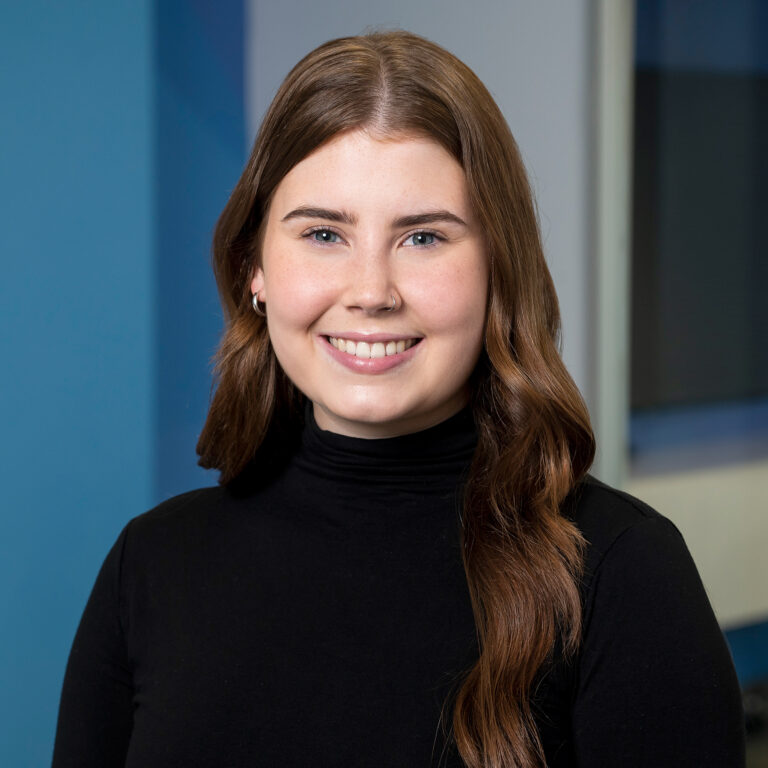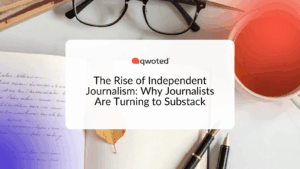

Qwoted 100 PR Superstar: Ally Dyck of seoplus+.
Newer to the PR scene and making a big splash, Ally Dyck joined the Digital PR team at seoplus+ in 2023 after graduating from Carleton University with degrees in Political Science and Communications & Media Studies.
As Media Relations Strategist Dyck combines her passion for storytelling with building connections by crafting compelling stories for clients and landing high-quality coverage. Dyck has landed placements for clients in top-tier publications such as Forbes, Business Insider, TIME Stamped, and more.
Qwoted: What do you see as the future of PR—technologically, strategically, or in any category you’re passionate about?
Ally Dyck: I see the future of PR doubling down on human interest stories. The faces behind brands, the people behind social accounts, the stories behind products. I think as much as technological advancements such as AI support many aspects of change in the industry, at its core, PR is built on good storytelling and is most effective when those stories are told and authentic – not conjured up by a machine.
Qwoted: What do you do that you’re most proud of and that other PRs could learn from?
Dyck: Timing follow ups just as strategically as the initial pitch and tracking metrics around emails. From my experience and understanding, a majority of reporters, editors and journalists still prefer email as the initial point of contact. Email tracking software makes it super easy to know when they have read the message and when to follow up (usually 5ish days after the initial pitch for us). I’ve noticed a majority of positive responses come from following up. It works even better if you add another useful nugget of information to the follow-up pitch to re-engage the contact if they have read the pitch.
Qwoted: What’s your toughest challenge with reporters?
Dyck: Likely an answer you have heard before, but timing. So much of effective outreach relies on the reporter reading your pitch at the right time and often feels out of our control as PR professionals. What is in our control, however, is relevancy, offering an angle –not just an expert– and the ability to personalize each pitch. If a pitch is relevant and interesting, despite bad timing, you may be able to catch them on the follow-up, or they may even reach out to you in the future when they need your subject matter expert for another story that comes up.
Qwoted: How do you approach breaking through the noise floor to get effective coverage?
Dyck: Breaking through the noise requires curating outreach lists of reporters who are actually talking about our expert’s niche and only pitching press requests that are relevant. Without relevancy and “offering” some sort of solution to the reporter, you are only wasting your own and the reporter’s time. When responding to press requests that ask for comments, we work with our clients to ensure they are giving concise, accurate and relevant information up front, not just offering to schedule an interview.
Qwoted: How does PR in 2024 square with the future of journalism?
Dyck: Everyone knows that there are way more PRs than journalists, and many journalists are also apathetic to the majority of the pitches they receive. However, PR practitioners are still necessary when journalists need these subject matter experts. It’s all about relationship building. Responsiveness and respect for each other’s time go a long way in achieving this.
Qwoted: What advice would you give to those seeking to find an effective PR person?
Dyck: Know your own priorities and ensure they align with the areas the PR person or agency has proven success in. The first question our Digital PR team asks any clients onboarding with our agency is what their goals are with PR. With digital PR being one of the most effective tactics for increasing off-page SEO authority, it is important to decipher with clients if they are looking for more technical PR that will benefit their website or if they are more focused on traditional brand recognition. Our team is well suited to focus on both, but are much more effective when aligned strategically from the start.
Qwoted: What is your golden rule of PR?
Dyck: Know your clients well, and don’t pitch if it’s not relevant. Working in an agency setting means we represent many different clients in many niche industries. Taking the time to get to know our clients, their voice, their goals and their limitations for comment is extremely important for our working relationship. The other side of this is that we won’t pitch something irrelevant to a reporter, especially if we know there may be a story for a different client down the road. With relationship building as the underscoring goal, you never want to tarnish a potential relationship with a bad pitch off the bat.
Ally Dyck is Media Relations Strategist at seoplus+. Email ally.dyck@seoplus.ca or connect on LinkedIn.

Lou Carlozo is Qwoted’s editor-in-chief and the editor-publisher emeritus of Talking Biz News. His memoir “The Lost Coin” is slated for publication this year. Email lou@qwoted.com or connect on LinkedIn.


